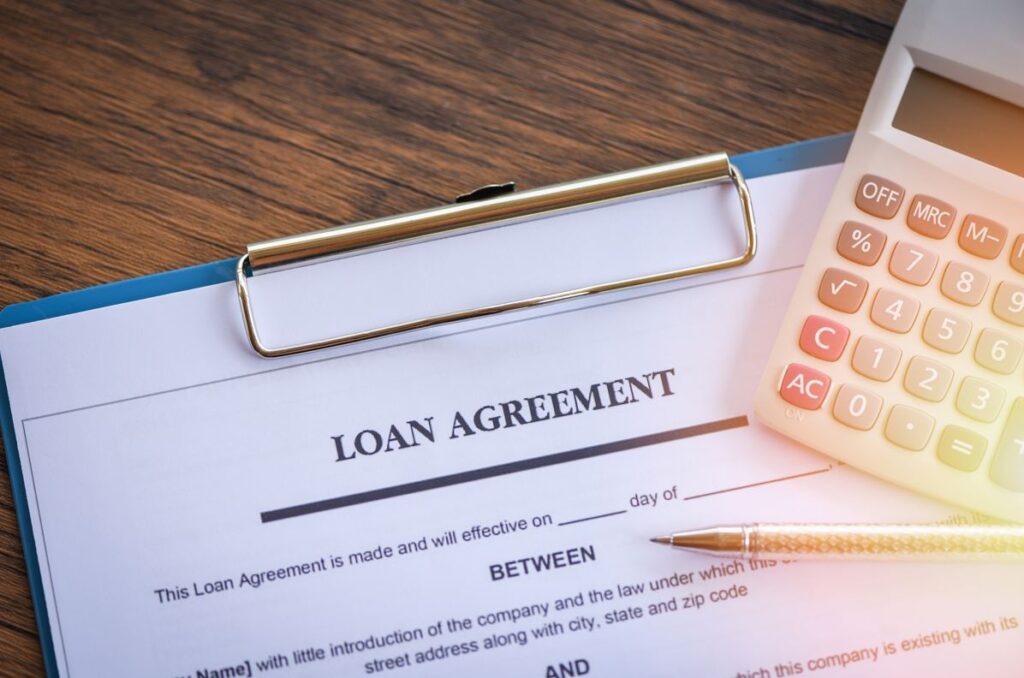
If you’re considering a career as a real estate agent in New Jersey, you’re likely wondering what it takes to secure your Jersey real estate license. The journey begins with a comprehensive pre-licensing course from a reputable real estate school, such as the Ocean School of Real Estate.
Since 1979, Ocean School of Real Estate has been a leader in real estate education at the Jersey Shore, offering courses for anyone interested in becoming a licensed real estate agent. With a variety of schedules to choose from, including Monday through Friday, weeknight, evening, and Saturday courses, the school caters to your needs and availability.
This blog post will guide you through what to expect from a New Jersey real estate pre-licensing course. We’ll cover everything from the course content, designed to prepare you for the Jersey real estate exam, to the steps you need to take after passing the exam to obtain your real estate license from the New Jersey Real Estate Commission.
Our aim is to provide you with a clear understanding of the path to becoming a licensed real estate agent in New Jersey, ensuring you’re well-prepared to embark on this exciting new chapter in your professional life.
What Do You Learn in Real Estate School? Preparing for a Real Estate Pre-Licensing Course
Real estate schools play a pivotal role in shaping the careers of many aspiring individuals in the real estate industry. They offer comprehensive real estate courses that provide the knowledge and skills required to prosper as a real estate salesperson. Here’s an insight into what you can expect to learn in real estate school:
Understanding Laws and Regulations
The first order of business in real estate schools is to familiarize students with the laws and regulations that govern the real estate business. This includes state-specific laws, federal real estate laws, and ethical guidelines that every licensed real estate agent must abide by. Mastery of these laws is not only crucial for passing your licensing exam, but also essential for navigating the complexities of the real estate industry throughout your career.
Navigating Property Transactions
Real estate courses also delve deep into the nitty-gritty of property transactions. Students learn about various types of contracts, negotiation tactics, and the process of closing deals. This knowledge is instrumental in guiding clients through the buying or selling process with ease.
Exploring Property Management
A significant portion of the curriculum in real estate schools is dedicated to different aspects of property management. You’ll learn how to evaluate property conditions, understand market trends, and assess property values. These skills are vital when advising clients on their property investments.
Grasping Real Estate Finance
Finance is another key area covered in real estate courses. You’ll explore topics such as mortgages, loans, and taxes that are central to most property transactions. A firm understanding of real estate finance can set you apart as an agent, enabling you to provide valuable advice to clients making financial decisions.
Mastering Marketing Techniques
Marketing plays a crucial role in the real estate business, and this is reflected in the course content of real estate schools. You’ll learn effective strategies for listing properties, conducting open houses, and utilizing digital marketing techniques to attract potential buyers.
Preparing for the Real Estate Pre-Licensing Course Exam
Finally, real estate schools place a strong emphasis on preparing students for the licensing exam. Through practice tests and interactive lessons, you’ll become familiar with the types of questions you’ll encounter on the actual exam, increasing your chances of passing on your first attempt.
Understanding the Real Estate Pre-Licensing Course
If you’re contemplating a real estate career, understanding the role of a pre-licensing course is essential. These courses are designed to equip aspiring real estate agents with the knowledge and skills they need to thrive in the industry. Ocean School of Real Estate, a leader in real estate education since 1979, offers comprehensive pre-licensing courses that prepare students for their New Jersey real estate licensing exam. Here’s a closer look at what a pre-licensing course entails.
The Purpose of a Real Estate Pre-Licensing Course
A pre-licensing course is the first step towards becoming a licensed real estate agent. It provides you with the foundational knowledge required to navigate the real estate market. The course covers a wide range of topics, from property law and finance to contract management and marketing strategies. Upon completion of this course, you’ll be well-equipped to guide clients through the process of buying or selling properties.
Real Estate Pre-Licensing Course Content
Ocean School of Real Estate’s pre-licensing course offers a comprehensive curriculum that covers the key elements of real estate practice. You’ll learn about property types and ownership rights, real estate laws and regulations, property valuation techniques, principles of marketing and sales, and ethical considerations in real estate practice.

This course also delves into the intricacies of real estate contract law, giving you a solid understanding of how contracts work in the context of property transactions. You’ll explore different types of contracts, negotiation tactics, and the processes involved in closing a deal.
Real Estate Pre-Licensing Course Preparation for the Licensing Exam
One of the main objectives of a pre-licensing course is to prepare students for the real estate licensing exam. At Ocean School of Real Estate, this preparation is thorough and tailored to the needs of aspiring real estate agents. Through practice tests and interactive lessons, you’ll become familiar with the types of questions you’ll encounter on the actual exam, increasing your chances of passing on your first attempt.
Flexible Scheduling
Recognizing that every student has unique needs, Ocean School of Real Estate offers a varied schedule of classes for the pre-licensing course. Whether you prefer Monday through Friday, weeknight, evening, or Saturday classes, there’s an option to suit your schedule.

Essential Classes for your Real Estate Pre-Licensing Course
Embarking on a career in real estate can be immensely rewarding, but it requires a solid foundation of knowledge. Whether you’re an aspiring real estate salesperson or aiming for a broker’s license, there are several classes that are integral to your real estate education. Here’s a breakdown of the essential courses you’ll need to take in your journey to becoming a successful real estate professional.
Real Estate Principles
This is typically the first course that prospective real estate agents take. It provides a broad overview of the real estate industry, covering topics such as property types, real estate law, and the role of a real estate agent. You’ll gain a comprehensive understanding of the real estate business, which will serve as the foundation for more specialized courses.
Real Estate Practice
A course in real estate practice delves into the day-to-day operations of a real estate agent. You’ll learn about listing properties, working with buyers and sellers, and closing transactions. This course provides practical insights into the real estate industry, preparing you for the realities of working as a real estate agent.
Legal Aspects of Real Estate
Understanding the legal aspects of real estate is crucial for any real estate professional. In this course, you’ll study property laws, landlord-tenant laws, and contract laws. You’ll also learn about the legal issues that can arise during property transactions and how to navigate them.
Real Estate Finance
A significant part of a real estate agent’s job involves guiding clients through the financial aspects of buying or selling property. A course in real estate finance will cover topics such as mortgages, taxation, and investment analysis. This knowledge will enable you to provide valuable financial advice to your clients.
Property Management
If you’re interested in managing rental properties, a course in property management is essential. You’ll learn about tenant relations, property maintenance, and rental laws. This course will prepare you to manage properties effectively and efficiently.
Real Estate Appraisal
Understanding how to determine the value of a property is a vital skill for a real estate agent. In a course on real estate appraisal, you’ll learn about different appraisal methods and the factors that can affect a property’s value.
Real Estate Marketing
A key part of a real estate agent’s job is marketing properties to potential buyers. A course in real estate marketing will teach you effective marketing strategies, from staging open houses to leveraging social media.
Tips to Prepare for Real Estate School And A Real Estate Pre-Licensing Course
Entering real estate school is an exciting step towards launching your career as a real estate agent. However, much like any educational journey, it requires preparation and commitment. Here are some valuable tips to help you effectively prepare for your real estate education.
1. Understand the Commitment
Real estate school requires a significant investment of time and effort. Before you enroll, it’s important to understand the commitment you’re making. This includes being aware of the course duration, the number of hours you need to complete, and the scheduling options available. Make sure you can dedicate sufficient time to your studies without neglecting other commitments.

Much more detail concerning renting and leasing properties will be covered in a real estate pre-licensing course. This will generally vary depending on individual state laws.
2. Brush Up on Basic Math Skills
While you don’t need to be a mathematician to succeed in real estate, basic math skills are essential. You’ll need to calculate areas, understand financial calculations, and work with percentages. If it’s been a while since you’ve done math, consider taking a refresher course or practicing online.
3. Familiarize Yourself with Real Estate Terminology
The real estate industry has its own language, and understanding it is crucial to your success both in school and in your career. Start familiarizing yourself with common real estate terms before you start your courses. There are plenty of online resources and glossaries available that can help you with this.
4. Develop Good Study Habits
Good study habits are key to succeeding in real estate school. This includes setting a regular study schedule, finding a quiet place to study, and taking frequent breaks to avoid burnout. Also, consider forming a study group with your classmates to share ideas and insights.
5. Take Advantage of Available Resources
Most real estate schools provide a wealth of resources to their students, including study guides, practice exams, and tutoring services. Make sure to take full advantage of these resources to supplement your learning and prepare for your exams.
6. Stay Current with the Real Estate Market
Real estate is a dynamic industry, and staying current with market trends can enhance your understanding of the material you’re learning in school. Start following real estate news and trends in your local area and nationally.
7. Keep Your End Goal in Mind
Finally, always remember why you’re attending real estate school: to launch a successful career as a real estate agent. Keep this goal in mind as you navigate your courses. It will help motivate you when the going gets tough and keep you focused on what you need to do to succeed.
Real Estate Pre-Licensing Course In Ocean County, NJ
A successful career in real estate involves a comprehensive understanding of various aspects of the industry, from overarching principles to the nuances of property management and appraisal. Real estate school equips you with the necessary knowledge and skills to navigate this dynamic field. However, your journey doesn’t end with the completion of your coursework.
Staying abreast of current market trends, continual learning, and dedicated application of your skills in the real world are also key to your success in this domain.
Remember, the real estate sector provides a platform where you can make a significant impact by helping others fulfill their property aspirations. Your commitment, enthusiasm, and perseverance are the ultimate drivers of your success in this exciting profession.

Real Estate Pre-Licensing Course At Ocean Schol Of Real Estate
Taking a real estate pre-licensing course is a great way to learn more about the industry and start your career off on the right foot. The courses are typically very comprehensive and will cover everything from real estate law to ethics. Though there is an up-front cost, they are worth the investment. Just make sure to do your research before signing up for any course so that you know what to expect.
We hope this article has helped give you a better understanding of what to expect from a real estate pre-licensing course. If you have any questions, please feel free to contact us. We would be happy to help!
Now that you know what to expect from a Real Estate Pre-Licensing Course,
it’s time to enroll in one!
Frequently Asked Questions
Q: Can I take the New Jersey real estate exam at my own pace?
A: You can take the New Jersey real estate exam within two years of passing the pre-license course.
Additional Resources
- Tips You Should Know For Networking As A Real Estate Agent
- New Jersey Real Estate Exam Preparation Tips



